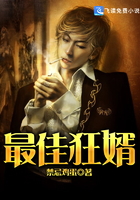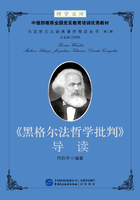Between his work for Stoller and what sometimes seemed the obstructiveness of General Triscoe, Burnamy was not very much with Miss Triscoe. He was not devout, but he went every Sunday to the pretty English church on the hill, where he contributed beyond his means to the support of the English clergy on the Continent, for the sake of looking at her back hair during the service, and losing himself in the graceful lines which defined, the girl's figure from the slant of her flowery hat to the point where the pewtop crossed her elastic waist. One happy morning the general did not come to church, and he had the fortune to walk home with her to her pension, where she lingered with him a moment, and almost made him believe she might be going to ask him to come in.
The next evening, when he was sauntering down the row of glittering shops beside the Tepl, with Mrs. March, they overtook the general and his daughter at a place where the girl was admiring some stork-scissors in the window; she said she wished she were still little, so that she could get them. They walked home with the Triscoes, and then he hurried Mrs.
March back to the shop. The man had already put up his shutters, and was just closing his door, but Burnamy pushed in, and asked to look at the stork-scissors they had seen in the window. The gas was out, and the shopman lighted a very dim candle, to show them.
"I knew you wanted to get them for her, after what she said, Mrs. March," he laughed, nervously, "and you must let me lend you the money."
"Why, of course!" she answered, joyfully humoring his feint. "Shall I put my card in for the man to send home to her with them?"
"Well--no. No. Not your card--exactly. Or, yes! Yes, you must, I suppose."
They made the hushing street gay with their laughter; the next evening Miss Triscoe came upon the Marches and Burnamy where they sat after supper listening to the concert at Pupp's, and thanked Mrs. March for the scissors. Then she and Burnamy had their laugh again, and Miss Triscoe joined them, to her father's frowning mystification. He stared round for a table; they were all taken, and he could not refuse the interest Burnamy made with the waiters to bring them one and crowd it in. He had to ask him to sup with them, and Burnamy sat down and heard the concert through beside Miss Triscoe.
"What is so tremendously amusing in a pair of stork-scissors?" March demanded, when his wife and he were alone.
"Why, I was wanting to tell you, dearest," she began, in a tone which he felt to be wheedling, and she told the story of the scissors.
"Look here, my dear! Didn't you promise to let this love-affair alone?"
"That was on the ship. And besides, what would you have done, I should like to know? Would you have refused to let him buy them for her?"
She added, carelessly, "He wants us to go to the Kurhaus ball with him."
"Oh, does he!"
"Yes. He says he knows that she can get her father to let her go if we will chaperon them. And I promised that you would."
"That I would?"
"It will do just as well if you go. And it will be very amusing; you can see something of Carlsbad society."
"But I'm not going!" he declared. "It would interfere with my cure. The sitting up late would be bad enough, but I should get very hungry, and I should eat potato salad and sausages, and drink beer, and do all sorts of unwholesome things."
"Nonsense! The refreshments will be 'kurgemass', of course."
"You can go yourself," he said.
A ball is not the same thing for a woman after fifty as it is before twenty, but still it has claims upon the imagination, and the novel circumstance of a ball in the Kurhaus in Carlsbad enhanced these for Mrs.
March. It was the annual reunion which is given by municipal authority in the large hall above the bathrooms; it is frequented with safety and pleasure by curious strangers, and now, upon reflection, it began to have for Mrs. March the charm of duty; she believed that she could finally have made March go in her place, but she felt that she ought really to go in his, and save him from the late hours and the late supper.
"Very well, then," she said at last, "I will go."
It appeared that any civil person might go to the reunion who chose to pay two florins and a half. There must have been some sort of restriction, and the ladies of Burnamy's party went with a good deal of amused curiosity to see what the distinctions were; but they saw none unless it was the advantages which the military had. The long hall over the bathrooms shaped itself into a space for the dancing at one end, and all the rest of it was filled with tables, which at half past eight were crowded with people, eating, drinking, and smoking. The military enjoyed the monopoly of a table next the rail dividing the dancing from the dining space. There the tight-laced Herr Hauptmanns and Herr Lieutenants sat at their sausage and beer and cigars in the intervals of the waltzes, and strengthened themselves for a foray among the gracious Fraus and Frauleins on the benches lining three sides of the dancing-space. From the gallery above many civilian spectators looked down upon the gayety, and the dress-coats of a few citizens figured among the uniforms.
As the evening wore on some ladies of greater fashion found their way to the dancing-floor, and toward ten o'clock it became rather crowded. A party of American girls showed their Paris dresses in the transatlantic versions of the waltz. At first they danced with the young men who came with them; but after a while they yielded to the custom of the place, and danced with any of the officers who asked them.
"I know it's the custom," said Mrs. March to Miss Triscoe, who was at her side in one of the waltzes she had decided to sit out, so as not to be dancing all the time with Burnamy, "but I never can like it without an introduction."
"No," said the girl, with the air of putting temptation decidedly away, "I don't believe papa would, either."
A young officer came up, and drooped in mute supplication before her.















